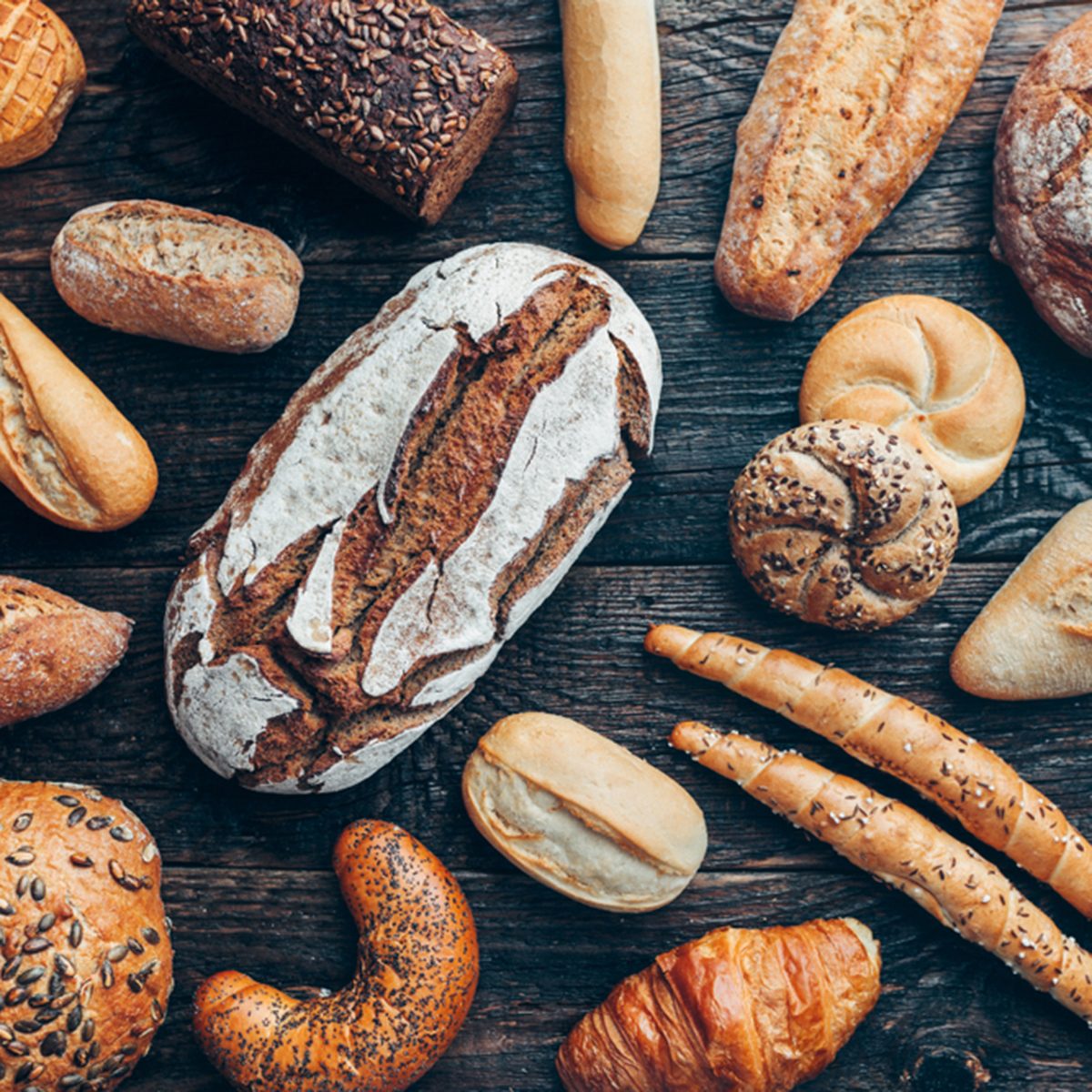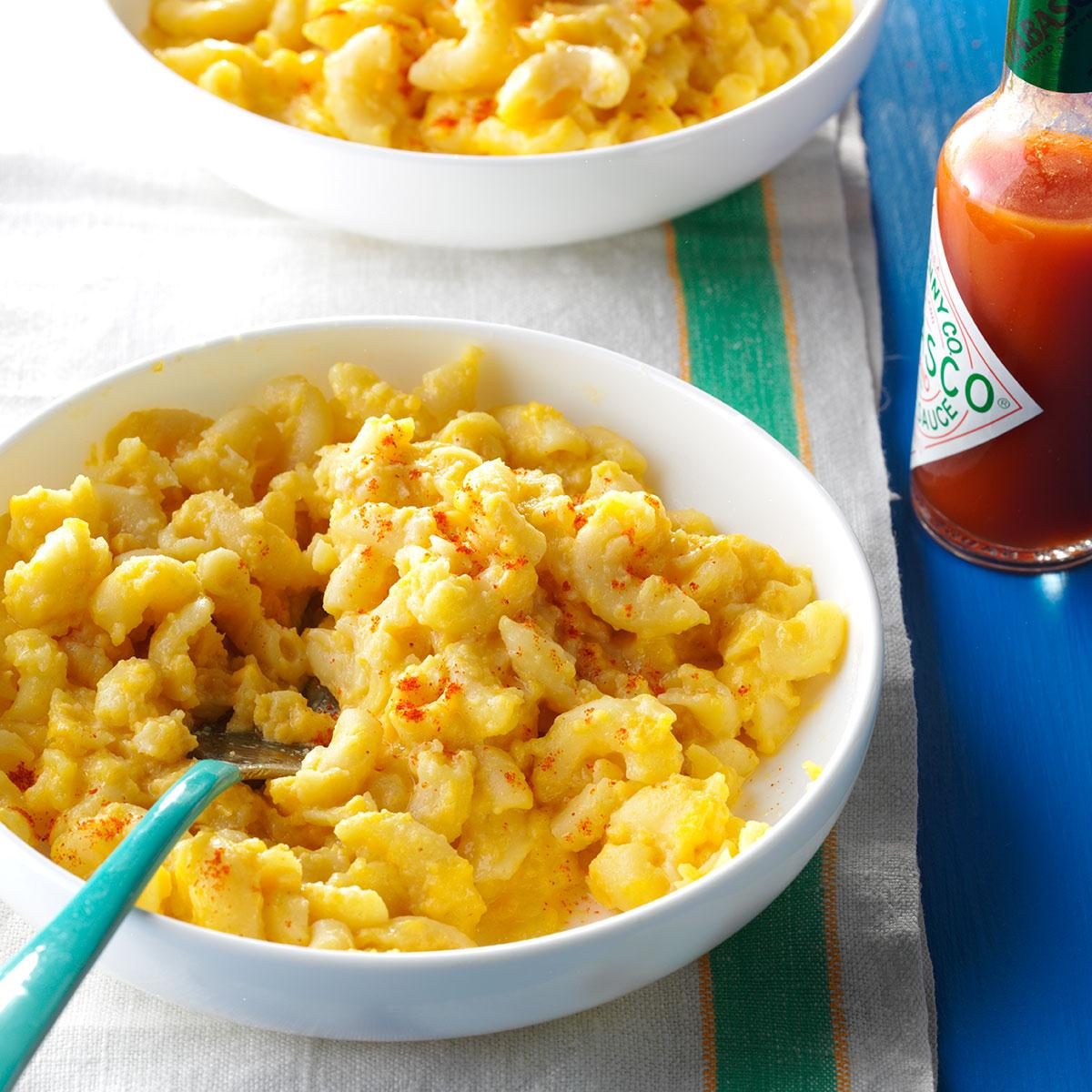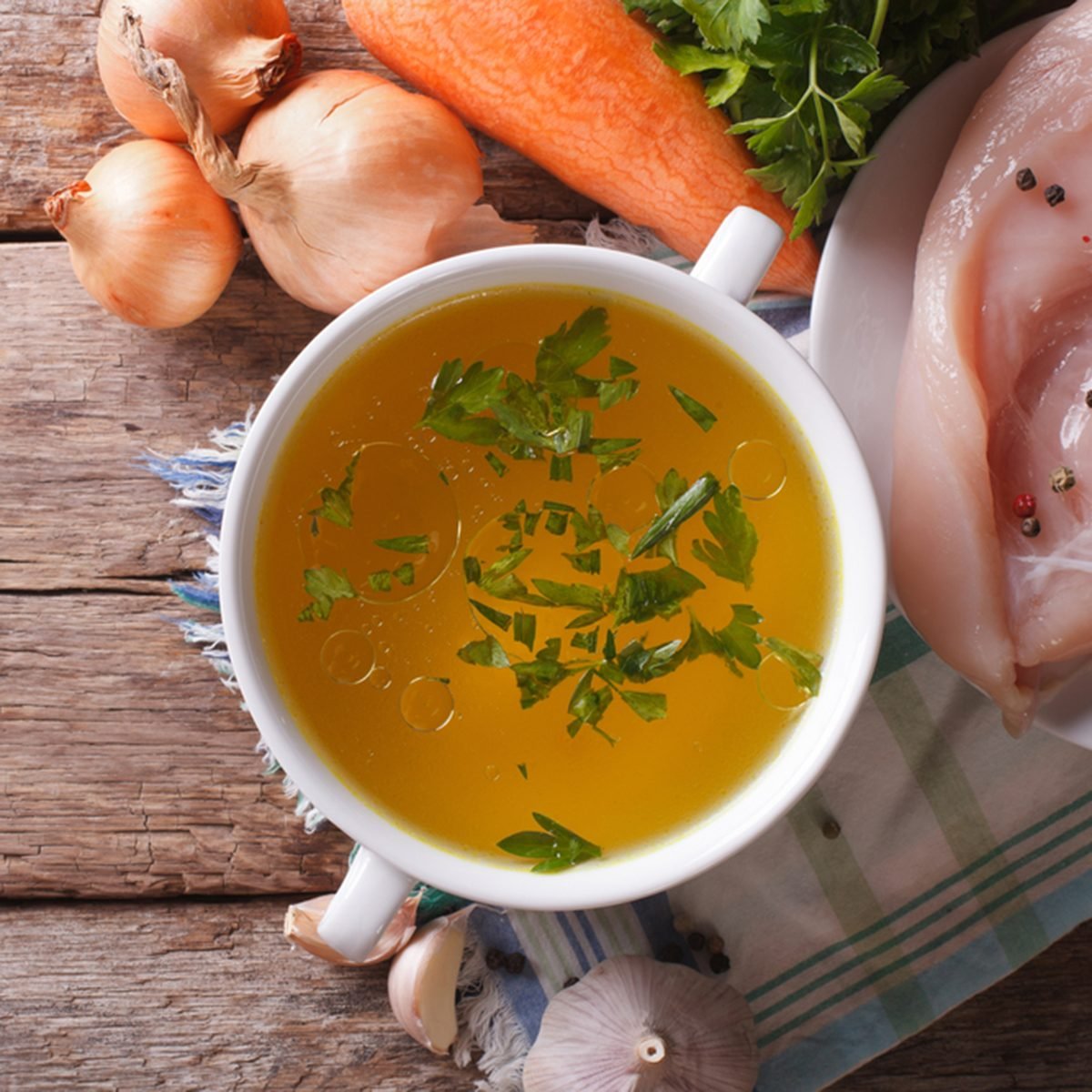
Ketchup
“Ketchup is an ingredient that I will always buy and not make in both my home and professional kitchens,” says Jonathan Olson, chef of The Keep in Columbus, Ohio. “I have made it before many times and tried many other ‘housemade’ ketchups, but somehow the flavor and texture never seem to stack up to the store-bought versions. Heinz is my brand of choice. It can stand alone as a condiment. Or add vinegar, some sweetness and spices to meatloaf. Or act as a base for your own BBQ sauce, dressings and more.”

Bread
“Bread, hands down. There are much better bakers than I,” says Geoffrey Zakarian, chef/partner of Point Royal at The Diplomat Beach Resort in Miami.

Macaroni and cheese
“I try and make most things for myself or my wife, but dishes for the kids becomes a little more challenging as they are picky and young,” says Michael Schulson, chef and restaurateur of Monkitail at The Diplomat Beach Resort in Hollywood, Florida. “The one dish I never try to make them, after trying many times to no avail, is macaroni and cheese. I can’t compete with the box and the frozen brands.”

Spice mixes and dry rubs
“As an avid outdoor grill user year-round and a home chef, I like to spend my time grilling food to perfection, as opposed to spending the time mixing seasonings,” says Michael Reich, chef at JW Marriott Chicago. “There are some really upscale spice shops today in the market that can even custom mix specialty seasoning mixes.”

Puff pastry
“This is the pastry you make once, in culinary school, and never again, unless you own a French bakery,” says Laura Scheck, founder and chef of Teaching Table. “Puff pastry is a labor of love, and it needs to be very precise. It takes hours and muscle. It also requires an obscene amount of butter, so to make it yourself is a bit of a turn-off and doesn’t make you think you are saving any money either.”

Stock
“At my restaurant, I’m inspired by French cuisine that often takes a lot of time-consuming prep work, but in my home kitchen, I have a few time-saving tricks,” says Austin Simmons, chef at TRIS in Houston. “The stock I make at the restaurant takes up to 48 hours, and that isn’t feasible when I’m at home cooking for my family. Instead, I purchase an organic low-sodium stock and add in elements from my restaurant recipe to make a flavor-filled dish without going through a lengthy process.”

Dijon mustard
“Dijon has the perfect balance of sweet, sour and tang,” says Mike Harvey, executive chef of Queen Street Catering in Charleston, South Carolina, who prefers the Maille brand. “Mustard is one of two natural emulsifiers that allow two things that don’t want to combine come together, like water and vinegar or fat and water. Maille is perfect on its own with pork or crusting lamb, it makes a great sauce base for steak, and it can help emulsify lemon, oil and herbs for a great fish sauce. The possibilities are endless.”

Black garlic
“This is an aged garlic that has been fermented in whiskey barrels,” explains Jeremy Ford chef of Stubborn Seed, Miami Beach. “We attempted to make it and it was a disaster: The first two attempts were unsuccessful and it was completely moldy. The third time it smelled like death!”

Mayonnaise
“I love Hellman’s Mayonnaise! I am one of those people that can literally dip everything in mayo—from my fries to chips and pizza crust,” says Paula DaSilva, chef at Burlock Coast, The Ritz-Carlton, Fort Lauderdale. “While making a simple mayonnaise is easy, the classic flavor of Hellman’s is hard to beat.”

Vinegar
“I prefer to buy vinegar over making it,” says Isaac Toups, executive chef and owner, Toups’ Meatery and Toups South in New Orleans. “While I love making my own things from scratch—like my homemade tomato paste, all my pickles and charcuterie and my own ‘moonshine’—the truth is I use an enormous amount of vinegar and a lot of different varieties, so the volume I would need to make would be exhausting.”

Marinara sauce
“It’s easier to buy pre-made marinara sauce that to make it myself,” says Johnny Ulloa, executive chef of Skyroom in New York City. “I like to buy a high-quality sauce and add my own spices into the sauce, to doctor up the flavor.”
This is the best spaghetti sauce brand you can buy at the store.

Beans
“At home and in the restaurant, I would use canned beans instead of soaking and cooking dry beans,” says Frank Proto, chef-instructor at the Institute of Culinary Education. “Instead of having cooks over or undercook the dry beans, canned is the way to go. Canned beans are consistent and uniform.”

Tapenade
“It’s made with black olive purée, olive oil, basil and thyme,” says Daniel Boulud, chef and restaurateur of Boulud Sud Miami. “I buy it so I don’t have to pit the olives. Usually, they are made with small olives from Provence, which are a pain to pit. You can use it as a dip for crudités or as a spread on a sandwich. It also stays well in the fridge.”

Taco seasoning
“My wife buys a container at Costco,” says Oliver Ridgeway, chef of Camden Spit & Larder in Sacramento, California. “It’s really quick at home to brown off some ground turkey and throw in some taco seasoning for a quick mid-week taco for the kids.”
Find out the 18 things chefs always buy at Costco.

Kimchi and sauerkraut
“I eat kimchi or sauerkraut with my eggs every morning,” says Anthony Strong, owner and executive chef of PRAIRIE in San Francisco. “These probiotic-rich foods set the whole day up for success. Breakfast is the only meal I ever eat at home, so these are basically the only things I have in my fridge.”
The post 15 Chefs Reveal Which Foods They Rarely Cook from Scratch appeared first on Taste of Home.
Kimberly Holland